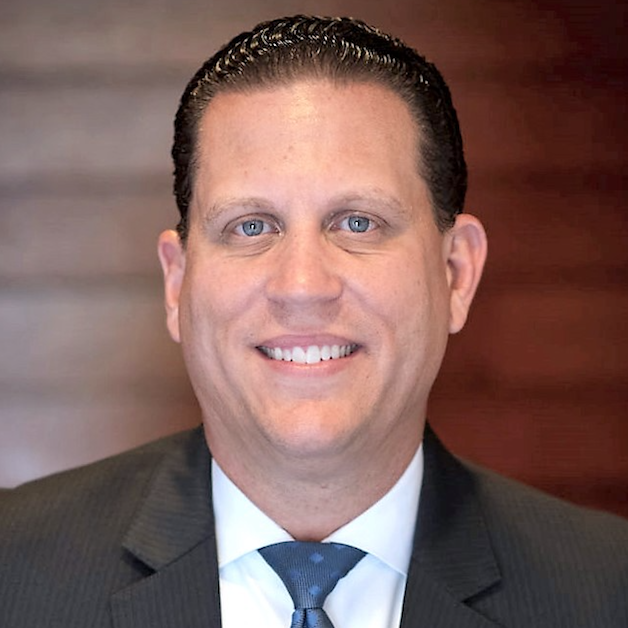
Jeremy Falke joined Dallas-based Capital Senior Living in early 2018 as senior vice president of human resources, having previously served in HR roles at Tenet Healthcare. He recently spoke to McKnight’s Senior Living about the role human resources plays in an organization and new developments at the company, which has 6,600 employees nationwide.
What originally attracted you to human resources?
I started my career in logistics and supply chain management and have more of a fiscal or analytical mind, but I love people. I had an opportunity early on in a small, national, startup hospital system. After about 100 days working in materials leadership, they asked me to lead HR, and I said OK. And then from there, I’ve learned two things that are really important to me, personally and professionally. One is that human resources is a space of the business that allows me a chance to leverage my spirit of servant leadership and just how much I care about people. And the second thing is, I want to be a part of a company that makes a positive impact in someone else’s life. Those two things keep me tied into HR.
How do workforce issues in the acute care setting compare with workforce issues in the senior living setting?
There are lots of similarities. Probably the most common when it comes to people is the continual search for people with that caring spirit, the “it” thing. The people who do the greatest in roles in a care setting are people who have some intrinsic motivation or mission spirit to care for others. The biggest difference is probably just the acuity level, and that impacts the folks that you need in your staffing mix.
Could talk a little bit about how success in the HR area affects overall company performance?
We are really privileged to be in a business where, when you take all the bricks and mortar away and you take all the pieces of the business away, it is literally one human being who’s caring for another human being who needs some level of care. The people are your business. So I’ve always been a really strong believer that the better we are at human resources, the better we’ll be at our mission of that one human being caring for another, and that company performance follows that. We’re really focused on creating an organization with the greatest consistency around pieces and programs and processes to engage our people across the company. In doing that, it both gives people additional benefit to be a part of the Capital Senior Living family and also gives us positive financial returns, whether it’s through expense savings through centralization or it’s just in the fact that we have great people who provide great care to our seniors, which drives our business forward.
Capital is one of 12 participants in a new, four-year, $12 million apprenticeship grant from the Department of Labor being administered through the Dallas County Community College District.
Yes. Over the four years of the grant, we’ll be helping to train 400 apprentices. We’re still working on the details, but apprentices may be on site at some of the local community colleges, with even more online education. The program will focus on CNAs, licensed practical and vocational nurses and registered nurses. It’s a full career ladder, from a dietary aide or a server who could work through the apprentice program and become a CNA and then from there move right into the next step of becoming an LPN or RN and all the way to wellness director or executive director. That’s something the Department of Labor is really excited about, too — getting people into higher living wage roles and improving entry level workers’ education and professional growth in the country.
We initially will start with current colleagues who are in roles, and then it’ll be a huge recruitment piece for us, too. All of the academic components will be funded through the grant, and we will provide the apprenticeships and that time and flexibility for them to be working for us in their current roles and also going through this educational program.
We’ll have the chance to leverage this program into several of the other states where we operate, and we’ll have the opportunity to show some of the other grant participants in acute care hospitals and health systems more about what senior living is and how it works. On the hospital side, people think of senior living as skilled nursing and that’s it. We’re having chances to talk about the differences in assisted living and independent living and the incredible quality of life and care that can happen in those communities at such a low cost. This also is a great opportunity for senior living to be around the table to talk about what CNAs look like in senior living — how they work, how they’re used, what competencies they need that might be different from a hospital. And the same thing with registered nurses.
In addition to this grant and the initiatives that will stem from that, what other initiatives has Capital Senior Living implemented in the area of human resources?
Our HR programs and processes are tied into our strategy of Stabilize, Invest, Nurture and Grow, or SING, and we’re starting to see a lot of very positive indicators of what that will do for our business. This is a very competitive labor market, so we are making sure we have an excellent benefits program that has a modern design and that is available to all benefit-eligible employees across the company. We’ve done a lot of work on that. In 2019, through August, we have increased our participation of our employees in our benefits plan by 40%. That’s something that I’m really proud about, because we’re creating a better life and better benefits for the colleagues that are part of our family.



